Field Notes
The ten safest countries to visit in 2025
Founded by Steve Killelea, an Australian technology entrepreneur and philanthropist, the Global Peace Index (GPI) ranks the safest and most peaceful countries in the world. The GPI ranks 163 countries (99.7% of the world's population) based on 23 factors that identify a nation’s absence of violence or fear of violence.
Measured by what the GPI refers to as ‘The three domains of peacefulness’, the first domain – Ongoing Domestic and International Conflict – investigates the extent to which countries are involved in internal and external conflicts, as well as their role in, and the duration of, conflict. The second domain – Societal Safety and Security – evaluates a nation’s level of harmony or discord by investigating crime rates, terrorist activity, violent demonstrations, relationships with neighbouring countries, the political landscape, and the health of the population. The third domain – Militarisation – reflects the link between a country’s level of military build-up, access to weapons, and its level of domestic and international peacefulness.
Published by the Institute for Economics and Peace, the GPI report has named these ten countries as the safest in the world in 2025.

Kirkjufell on the north coast of Iceland’s Snæfellsnes peninsula, near the town of Grundarfjörður. Photography: Tawatchai1990 @ Adobe Stock.
1. Iceland
Iceland is the safest country in the world for the 15th year in a row. With a relatively small population of 382,000, Iceland has a very low level of crime, which is typically attributed to its high standard of living, small population, strong social attitudes against crime, a high level of trust in its well-trained police force, and a lack of tension among social and economic classes. Iceland has no military, and the police do not carry firearms (only extendable batons and pepper spray). Iceland also has laws in place to guarantee equality among its diverse population.

The statue of Queen Caroline Amalie in the gardens of the Rosenborg Castle, Copenhagen, Denmark. Photography: Elroce @ Adobe Stock.
2. Denmark
Denmark is one of the few countries where people report feeling safe at any time of day or night. Denmark has a high level of equality and a strong sense of common responsibility for social welfare – two qualities that contribute to its citizens’ feelings of safety and happiness. While Denmark has high levels of personal income tax, it funds social programs that ensure all people receive services and incentives that help them live comfortable lives. For example, everyone in Denmark has access to tuition-free higher education and healthcare with no additional fees, and the elderly are provided at-home care helpers.
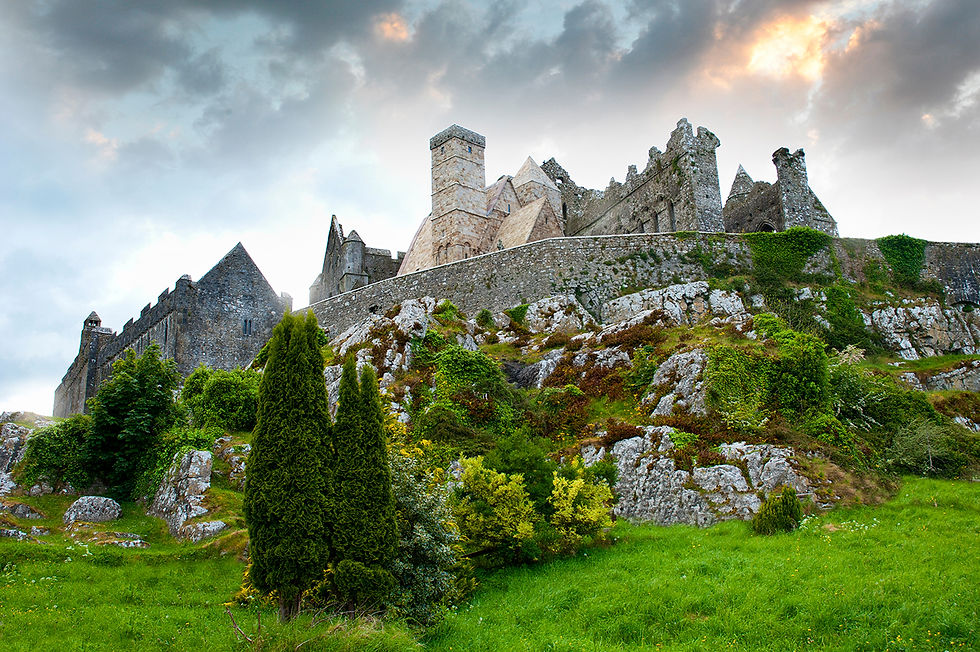
Ireland’s The Rock of Cashel. Photography: Doom.ko @ Adobe Stock.
3. Ireland
Ireland catapulted from 11th place to 3rd in 2022 and has retained its prized third spot on the list in 2025. Outside of a few city neighbourhoods, crime is quite low, but as in any country, one should be wary of pickpockets and scammers in tourist-dense areas. Today, there is little threat of cultural violence or terrorism, and the report notes that the Irish landscape may pose a greater safety risk than its people! The country’s breathtaking cliffs and winding country roads must be treated with respect, especially during a sudden rainstorm or in areas with no smartphone reception.

Taranaki Falls, Tongariro National Park, New Zealand. Photography: Henner Damke @ Adobe Stock.
4. New Zealand
New Zealand is the fourth-safest country in the world. Like Iceland, New Zealand has a very low crime rate, and violent crime is especially rare. Theft is still worth guarding against, especially in tourist areas (which holds true in every country in the world), but overall risk is minimal. Unlike its neighbour Australia, which is known for its dangerous wildlife, New Zealand has no deadly animals. New Zealanders are generally open-minded and have laws in place to prevent the violation of anyone’s freedom of speech or expression. As in Iceland, police in New Zealand do not carry firearms.
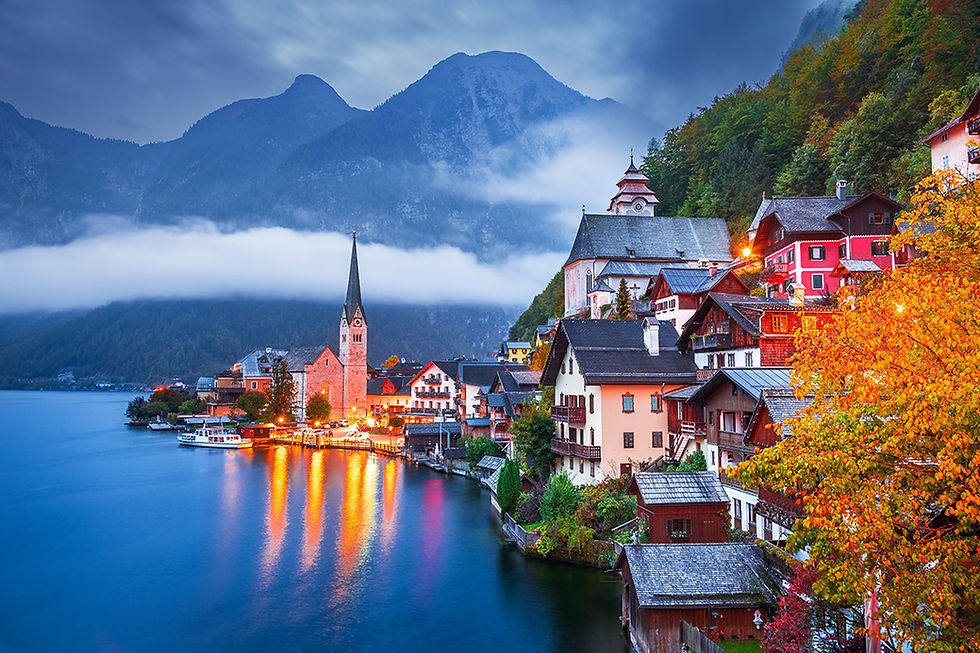%2C%20in%20Austria%E2%80%99s%20mountainous%20Salzkammergut%20reg.jpg)
Hallstatt, on Hallstätter See (Lake Hallstatt), in Austria’s mountainous Salzkammergut region. Photography: Ecstk22 @ Adobe Stock.
5. Austria
While violent demonstrations in the wake of ongoing social unrest remain a concern, these are relatively easy to avoid, and otherwise, Austria is a very safe country to visit. Serious crimes are uncommon (with the standard caveat to watch for pickpockets and purse-snatchers). Additionally, Austria has been spared any major acts of terrorism in recent years.
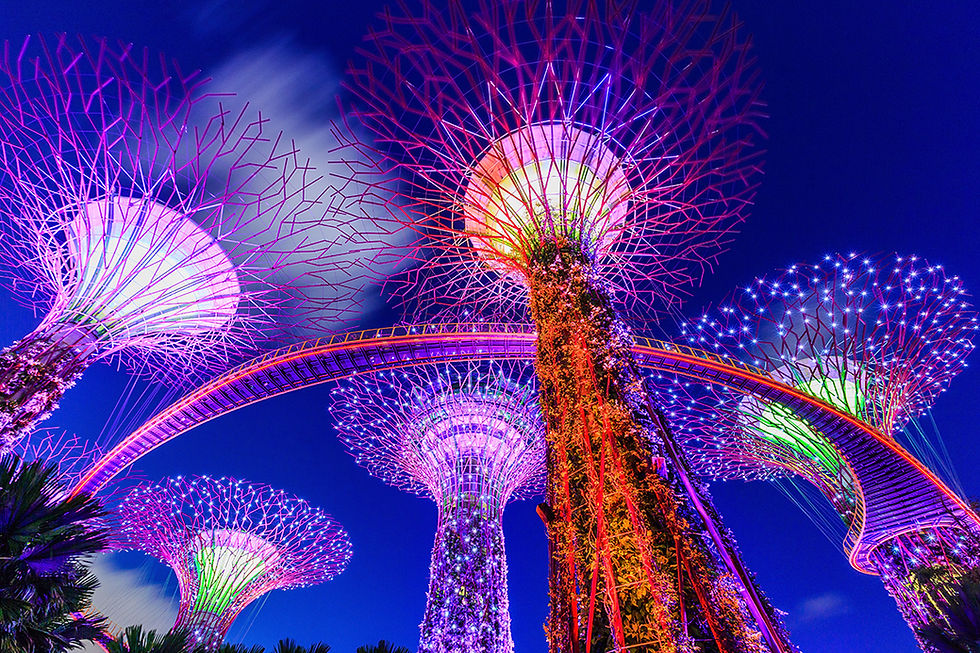
Supertree Grove, the 18 tree-like structures that dominate the Gardens by the Bay landscape, Singapore. Photography: SCStock @ Adobe Stock.
6. Singapore
Singapore residents feel the highest sense of personal security and have more positive experiences with law enforcement than residents of any other country. Singapore has one of the lowest crime rates in the world, possibly due to the severe penalties that are issued for even small crimes. The government and police strictly control guns and other firearms, and violent and confrontational crimes are rare in Singapore. Singapore also ranks as the second-safest city in the world after Tokyo.
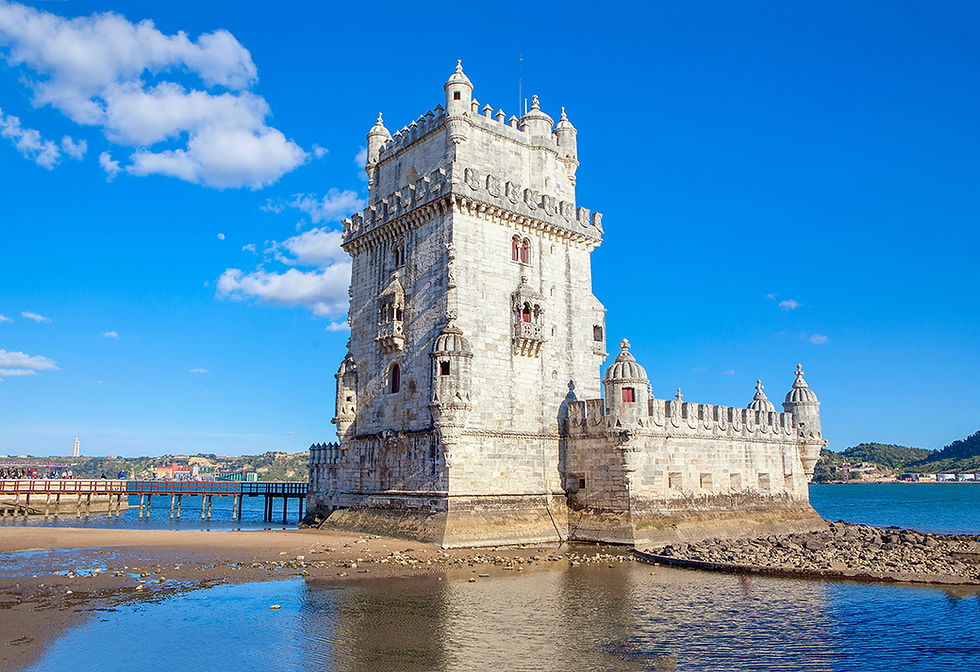
Belém Tower, a 16th Century fortification in Lisbon that served as a point of embarkation and disembarkation for Portuguese explorers and as a ceremonial gateway to Lisbon. Photography: Russieseo @ Adobe Stock.
7. Portugal
Ranked 18th globally in 2014, Portugal has made significant strides up the list. Unlike Iceland and New Zealand, Portugal has armed police, however an increased police presence has resulted in a decreased crime rate in the country. In recent years, Portugal has experienced an economic resurgence, decreasing its unemployment rate from over 17% to under 7%. Portugal consistently ranks among the best countries for retirement, due in no small part to its high level of safety.

Lake Bled in the Julian Alps of the Upper Carniolan region of northwestern Slovenia. Photography: Kavita @ Adobe Stock.
8. Slovenia
One of the former constituents of Yugoslavia, Slovenia has a high safety ranking that can be attributed to its excellent scores in three categories: travel security, medical risks, and road safety. Like many Slavic states, Slovenia installed a democratic government in the mid-1990s and is now focused on improving quality of life in many areas, including safety and sustainability.
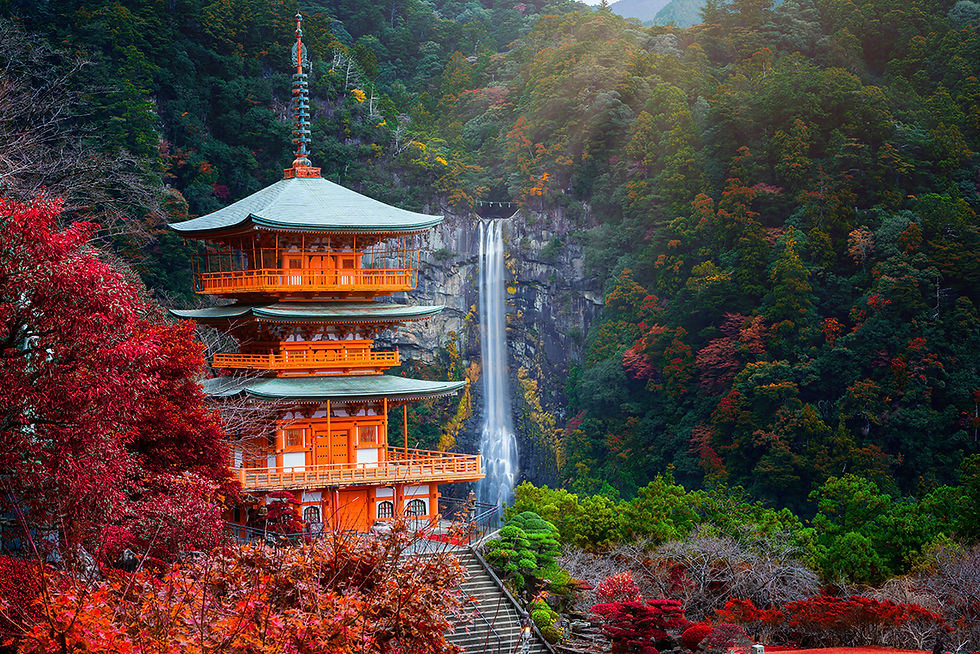
Kumano Nachi Taisha is a Shinto shrine and part of the UNESCO-designated World Heritage Sacred Sites and Pilgrimage Routes in the Kii Mountain Range of Japan. Photography: ID Anuphon @ Adobe Stock.
9. Japan
Japan has been in the top ten countries in the Global Peace Index for 15 years, consistently receiving high marks for low crime rates, minimal internal conflict, and virtually non-existent political unrest. Tokyo often features on lists as one of the safest cities in the world, ranking first in cybersecurity, second for health security, and fourth for infrastructure security and personal security. Japan’s proximity to potentially hostile neighbours China and North Korea could become a threat to its safety at some point but has not thus far. Japan is known for citizens having limited access to firearms, as the Japanese do not view carrying a firearm as an individual’s right.
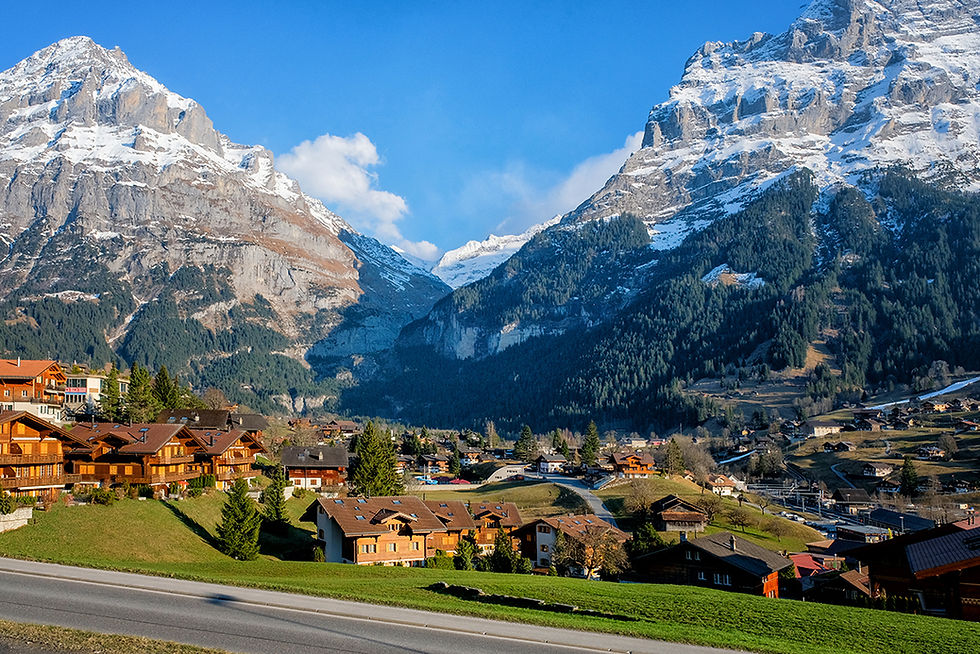
Grindelwald is considered to be one of Switzerland’s most popular travel destinations. Photography: Sahachat @ Adobe Stock.
10. Switzerland
Switzerland’s neutrality during periods of conflict attracted some of the world’s greatest minds, including James Joyce, George Byron, and Voltaire. Its European neighbours have honoured the country’s neutrality, leading it to not take sides in either of the world wars and remain outside the European Union. As a result, Geneva is a popular headquarters location for international organisations, such as the International Committee of the Red Cross and the United Nations.





